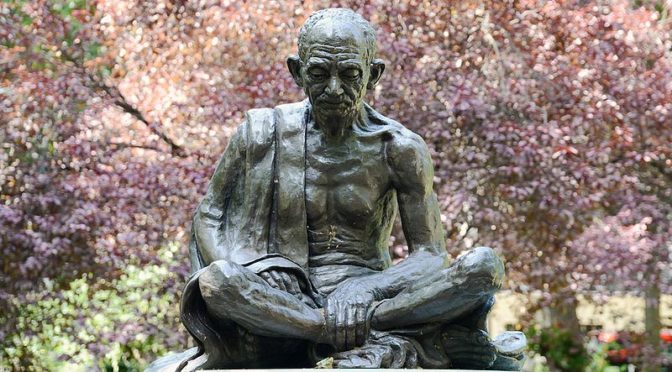A lecture by Eraldo Souza Dos Santos (PhD candidate at Université Panthéon-Sorbonne, Paris, associated at CEFRES) as part of the Franco-Czech historical seminar organized by Institute for Czech History of the Faculty of Arts, Charles University (FFUK), in collaboration with CEFRES.
Venue: Faculty of Arts of Charles University, nám. J. Palacha 2, Prague 1, room 201
Time: 14 November 2019, 9:10-12:10
Language: French
Abstract:
In his book Obligations (1970), the philosopher Michael Walzer explained that the civil disobedient is neither criminal nor revolutionary: the civil disobedient “breaks the law, but does so in ways which do not challenge the legitimacy of political or legal systems”. A civil disobedient such as Mohandas Gandhi would not subscribe to this definition. Because Gandhi’s non-violent critique was radical and demanded the abolition of the State – Gandhi proposed, as an alternative to the state, a federation of villages in post-colonial India – his theory of civil disobedience does not accommodate the “statist” interpretation of civil disobedience that is dominant today. In Gandhi’s view, the goal of civil disobedience is not to improve or to promote the principles of the modern state but, rather, to abolish them. This is what Gandhi calls “complete civil disobedience”.
The seminar will propose to reconstruct the history of how this idea was invented, and to show how it has been progressively forgotten in the history of political ideas.
During the following workshop (entitled “Kahan Chad’s political career”), we will discuss the different conceptions of civil disobedience circulating in the British Empire, based on the study of primary sources telling the story of an Indian child who was prosecuted for sedition and civil disobedience during the 1930s.
Image : https://commons.wikimedia.org/wiki/Category:Statue_of_Mahatma_Gandhi,_Tavistock_Square,_London#/media/File:Gandhi_Tavistock_July_2015-1.jpg

